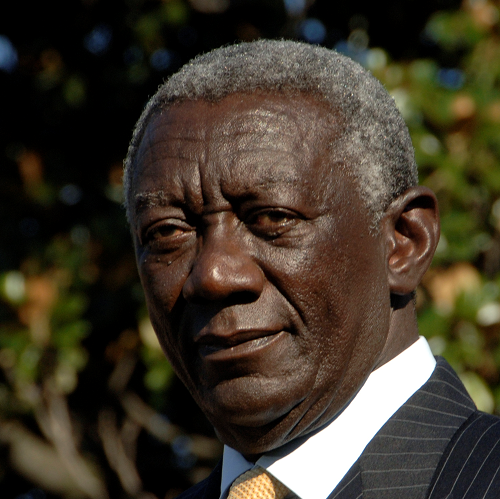Columns
Nutrition leadership during a pandemic
African governments must make data-driven choices to save lives and livelihoods.
John Agyekum Kufuor
An African proverb says, ‘When the music changes, so does the dance’. As governments around the world strive to protect their populations from the Covid-19 pandemic’s health and economic effects, the role of decisive leadership has never been more important—not least in the area of nutrition.
When we established African Leaders for Nutrition four years ago, our aim was to highlight revolutionary thinking in addressing malnutrition across the continent. None of our group’s founders—African Development Bank President Akinwumi A Adesina, the late former United Nations secretary-general Kofi A Annan, and I—could ever have imagined the burden that the pandemic would impose on the global development agenda.
The threat posed by this new virus requires us to tackle malnutrition in new ways. Covid-19 has revealed inefficiencies and inequities in all of our efforts to achieve robust and long-lasting improvements in nutrition. Africa’s rising number of Covid-19 cases threatens to increase hunger and malnutrition further, and has brought into focus how our thinking must change.
African leaders have a particular duty to mitigate the economic crisis. We must act urgently to safeguard and develop our health and food systems, as well as our social safety nets, in order to slow down the cycle of intergenerational poverty. Only integrated efforts will enable us to coordinate nutrition-related investments and improvements to social protection, and then to examine their impact.
Our task is huge: The 2020 State of Food Security and Nutrition in the World (SOFI) report and recent research published in The Lancet on the impact of Covid-19 on childhood malnutrition make for grim reading. After decades of progress in reducing all forms of malnutrition, the trend is reversing, owing to insufficient investment in promoting good nutrition, climate shocks, violent conflict, and now the effects of the Covid-19 crisis.
Africa has the highest prevalence of malnutrition of any region, and may soon overtake Asia in terms of the number of hungry and undernourished people. Among children younger than five, the economic impact of Covid-19 is projected to increase the incidence of wasting, which results from severe weight loss due to starvation and diseases associated with acute malnutrition. This, combined with reduced access to health and nutrition services, is expected to result in more than 128,000 additional deaths globally in 2020 among under-fives, with more than half of these occurring in Sub-Saharan Africa.
But the data also offer glimmers of hope, and point to three ways in which we can reimagine African leadership on nutrition. First, we have an opportunity to transform the economics of health and hunger. By 2030, global diet-related health costs are projected to reach $1.3 trillion per year. But shifting to healthy diets could reduce these costs by up to 97 percent, according to the SOFI report.
Second, nutrition must feature prominently in our Covid-19 response. The World Health Organisation estimates that investments in nutrition could save 3.7 million lives globally by 2025. Our leaders, therefore, must meet the challenge of providing adequate resources for the highest-impact interventions. These include exclusive breastfeeding, targeted complementary feeding, micronutrient supplementation, and food fortification.
Third, a strong nutrition component in pandemic-related social-protection programmes is vital to ensure that Africa no longer trails other regions in this regard. Weaknesses in the continent’s social-security programmes may prove disastrous for people already suffering from hunger or malnutrition. With disruptions to food systems and supply chains compounded by riding prices, social-protection programmes need to focus on broadening access to affordable and nutritious diets.
African Leaders for Nutrition’s focus remains the same: to amplify the voices of the continent’s leaders in order to support Africa’s policy conversations—including by facilitating high-level political engagement. Through our African Leaders for Nutrition Champion, King Letsie III of Lesotho, we are calling on heads of state and government of the African Union Assembly, the continent’s premier political institution, to ensure that nutrition features prominently in their Covid-19 response and recovery plans.
At the same time, our advocacy tools, such as the Continental Nutrition Accountability Scorecard, compile hard data on African countries’ progress on improving nutrition, services, governance, and socioeconomic outcomes. African governments must make data-driven choices to save lives and livelihoods during the pandemic and beyond, and such tools aim to guide them toward allocating financial resources and other support to achieve the greatest impact.
Above all, African countries must respond in concert to the challenges they face. That means fighting the pandemic in the framework of a longer-term strategy to end malnutrition and boost Africa’s collective problem-solving capacity. By uniting and amplifying the voices of Africa’s leaders, we can change the dance.
—Project Syndicate




 9.6°C Kathmandu
9.6°C Kathmandu















